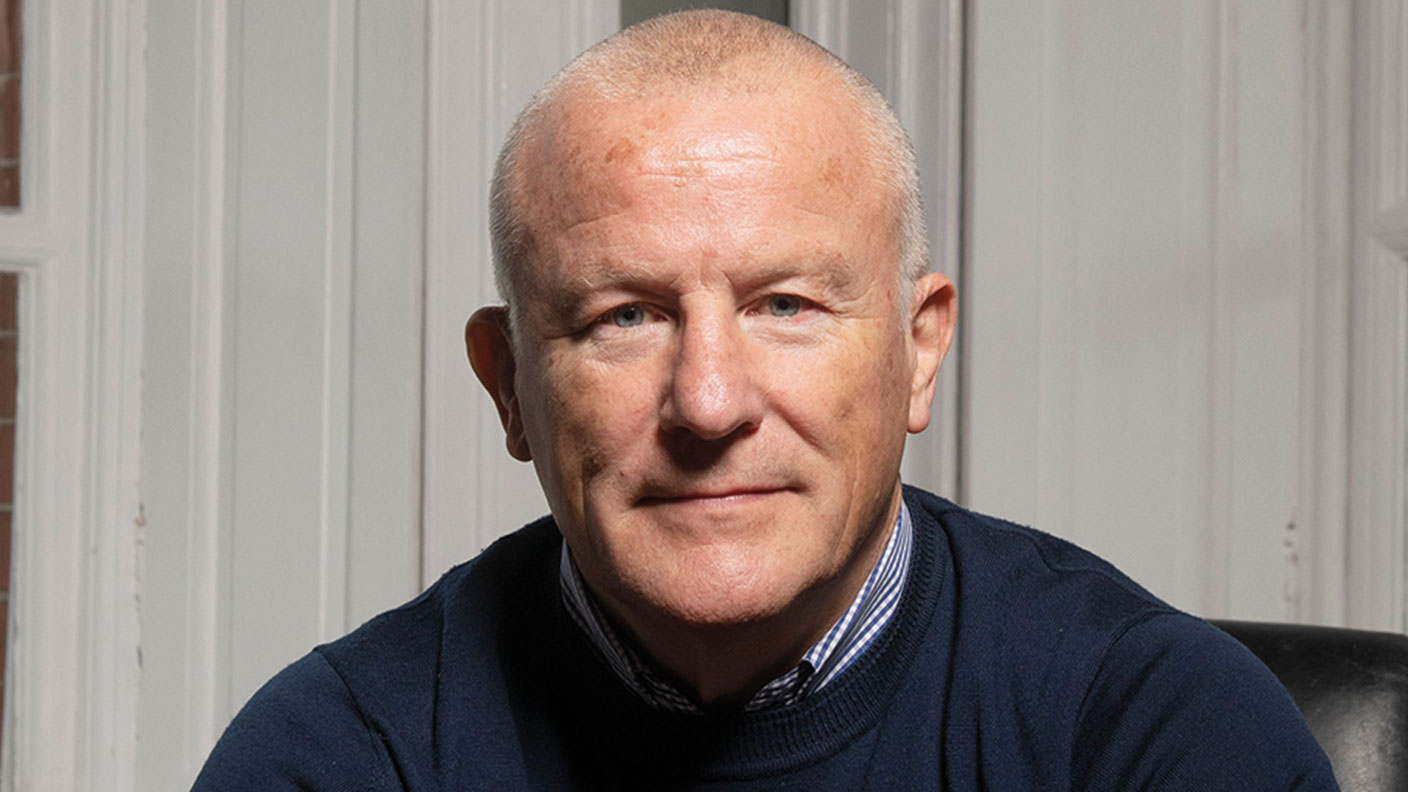The fallout from Neil Woodford’s fall from grace
If you own a Woodford fund, what should you do now? And what of the other stocks affected by the former “star” manager’s current woes? Merryn Somerset Webb has the answers.

Get the latest financial news, insights and expert analysis from our award-winning MoneyWeek team, to help you understand what really matters when it comes to your finances.
You are now subscribed
Your newsletter sign-up was successful
Want to add more newsletters?

Twice daily
MoneyWeek
Get the latest financial news, insights and expert analysis from our award-winning MoneyWeek team, to help you understand what really matters when it comes to your finances.

Four times a week
Look After My Bills
Sign up to our free money-saving newsletter, filled with the latest news and expert advice to help you find the best tips and deals for managing your bills. Start saving today!

Last week Neil Woodford, one of the UK's only "star" fund managers, was forced to suspend dealing in his flagship Woodford Equity Income Fund. Having once had assets of nearly £10bn, bad performance and concerns over the portfolio's structure led to mass withdrawals. This in turn led to liquidity problems: Woodford was unable to sell stocks fast enough at reasonable valuations to pay out to those cashing in without breaching regulations that limit the illiquid holdings in the Woodford Equity Income portfolio to 10%. Its suspension (or "gating") was the result. Since then nothing has gone right for Woodford. St. James's Place has ended its £3.5bn relationship with Woodford. Hargreaves Lansdown has taken the fund off its Wealth 50 list and publicly called for Woodford to cut the fees on the £3.7bn he has locked up. There has been wall-to-wall media coverage (relentlessly negative) and, worse, regulator, the Financial Conduct Authority (FCA) is talking about investigating. So what next? Below we try to answer some of the big questions on Woodford's spectacular fall from grace.
Is it possible that this is just a performance blip?
Whenever anyone talks about Woodford, they refer to his amazing record. But there might be less to this than meets the eye. His record at Invesco Perpetual was "outstanding", says Brian Dennehy of FundExpert. But that depends on how you measure it. Over the ten years to 2014 (when he set up alone), Woodford's Invesco Perpetual Income fund was a top performer compared with peer funds. But over the five years to 2014, it was placed only 33rd. Expand the comparison to all UK equity funds and it looks worse. In the ten years to 2014 it was 17th, and over five, 123rd.
Look, then, to his performance since Invesco Perpetual. Woodford Equity Income did fine in its first two years up 17% against a sector average of more like 2.5%. The longer-term record is not so good. From mid-June 2014 to the end of May this year it was up 1.16%. This lagged the UK Equity Income sector average by 25%. Note that while the liquidity problems in Woodford Equity Income can be blamed on the unquoted stocks held, the bad performance cannot. FundExpert points, for example, to the St. James's Place UK High Income fund, which Woodford was running for St James's Place. In May it performed even worse than Woodford Equity Income.
MoneyWeek
Subscribe to MoneyWeek today and get your first six magazine issues absolutely FREE

Sign up to Money Morning
Don't miss the latest investment and personal finances news, market analysis, plus money-saving tips with our free twice-daily newsletter
Don't miss the latest investment and personal finances news, market analysis, plus money-saving tips with our free twice-daily newsletter
The key lesson here is probably this: Woodford's success at Invesco Perpetual was largely based on a brilliant, but very big long-term, bet one that few others had the stamina to maintain "a consistently large overweight in defensives, in particular utilities, tobacco, and pharmaceuticals". When that stopped working and his style began to drift so did his performance. It could be a blip he has had them before. But it could be that his old style doesn't work any more and his new one doesn't either.
When can I sell?
Probably not for a good few months. The liquidity problem has been an issue for a few years, so Woodford will know where all the potential buyers are, but it will still take a while to get rid of all his illiquid stocks so he can pay out investors who want to leave. When the fund does reopen, investors should prepare for the value of their holdings to be lower than when it was "gated". There will be forced selling and there will be high levels of dealing costs, too. There is also still a chance that rather than restructure the fund Woodford, encouraged by the FCA, will decide to liquidate it completely and return the cash to investors.
Who can I blame for all this?
Woodford, his ego, and his management team, of course (I can't see his compliance officer moving onwards and upwards from here). He shouldn't have raised so much money (he had to take huge stakes in small firms to make it worthwhile which is one reason they are so hard to sell); he shouldn't have changed his style; and he should have managed his risks rather better. But there are other culprits. Hargreaves Lansdown overpromoted the fund. Its clients may be mainly DIY, but they still deserve better care than they got particularly given the importance that being a champion of the smaller investor is to the Hargreaves Lansdown brand.
Ratings agencies shouldn't get a free pass. Morningstar downgraded Woodford Equity Income last week. A little late? Nor should the independent financial advisers (IFAs) who shovelled clients into it as a "safe" branded income option, or much of the media (the Woodford PR machine was relentless, but we are supposed to see through that kind of thing). Finally there is the FCA. Should it have intervened earlier?
Does the disaster tell us something about the active industry as a whole?
In some ways the crisis is very Woodford-specific. But it should prompt a wider conversation the liquidity element could be the canary in the coalmine for what happens in the asset-management industry in the next downturn. In a report for Amundi, Pascal Blanqu (quoted by Patrick Jenkins in the Financial Times) warned about this. "Financial markets seem more and more a bigger house with smaller exit doors. The ability to transact in any meaningful size has in some way been diminished across all asset classes and that would be exacerbated in case of market turmoil."
Bank of England governor Mark Carney worries, too. "More than £30trn of global assets are held in investment funds that promise daily liquidity... despite investing in potentially illiquid underlying assets such as (emerging market) debt." What do you do? Note that it was liquidity issues that ignited the 2007-2008 financial crisis. Note, too, that in the hunt for returns in a low-growth world (and one in which fewer firms are listing) all too many fund managers have moved into illiquid private firms. Then make sure that if you hold illiquid assets in funds, you hold them in funds with a suitable structure (an investment trust, perhaps).
Any other lessons?
"Stars" come and go. Heavily branded fund managers aren't necessarily good ones. Being on a best-buy list doesn't necessarily make a fund safer or better than one not on the list. Funds can get too big for their own good. You should have a process for deciding when to buy and when to sell funds (just as you do stocks). Maybe review everything you hold every six months and if you aren't going to do this, stick with passive investing. Large egos don't fit with the skills good managers require. You probably shouldn't chase high profile managers when they move firms. The management process used by a firm can have as much of an effect on performance as the manager himself.
Will this prompt regulatory change?
Colin Clark, Conservative MP and member of the Treasury Select Committee, has asked the FCA to look at best-buy lists "in order to stamp out conflicts of interest". Ian Sayers of the Association of Investment Companies has also called for a review of the "commercial incentives to put one fund on the list and not others". This matters. According to the FCA, around 20% of investors base decisions on best-buy lists despite the fact they are entirely unregulated.
There may also be some conversation around what Alistair Osborne in The Times refers to as Woodford's "cosy connections" not only with Hargreaves Lansdown and St. James's Place, but also with brokers and individuals with myriad connections to the stocks in his funds. Finally, Nicky Morgan, chairwoman of the Treasury Select Committee, has written to the FCA about its "alertness to the problem". She has also followed MoneyWeek in asking that Woodford cut the fees he's receiving on Woodford Equity Income estimated to be around £100,000 a day during the suspension period. This isn't a regulatory issue, but it might make his beleaguered investors feel mildly less hostile towards him.
Should I buy the Woodford Patient Capital Trust?
Tough call. The share price of Woodford's other big fund a closed-ended trust designed to invest in small and unlisted companies for the very long term is down 20% since Woodford gated the Equity Income fund. The shares now cost around 63p each. That's nasty for anyone who bought at 100p at launch. But it makes sense. At the best of times it is hard to figure out what its holdings are worth (valuing unlisted stocks is, at best, an art). But right now, with doubt cast on Woodford's stock picks and crossovers (60%-70%) of holdings between Woodford Equity Income and Woodford Patient Capital Trust, it's even harder. The "gated" fund also owns around 10% of Woodford Patient Capital (yes, this is odd) so those shares will have to be sold too.
Finally there is a potential debt problem. The Financial Times's Matthew Vincent notes the trust's debt facility expires in January. But should it breach covenants before that "it will have no choice but to sell off assets to pay off the debt" all while Woodford Equity Income is selling the same assets. Talk about a fire sale. Also, the Woodford Patient Capital board isn't yet 100% on top of the problem. It is "closely monitoring the situation", but we want to know what it plans to do. Will it bid for the stakes Woodford is selling? Look for a new manager? Aim to manage the discount back up? That said, there is a level of discount that would make it worth a long-term punt. Right now, the discount is 30%. Some of you will think this enough. We don't think it's quite there yet.
Should I buy shares in Hargreaves Lansdown?
Before this saga, Hargreaves Lansdown shares traded on a price/earnings (p/e) ratio of around 40. Since then the share price is down 20% or so, and the p/e to 35. The problem isn't financial, it is brand. We often suggest Hargreaves Lansdown to DIY investors, not because it's the cheapest platform, but because it's the biggest, most solvent, and has the best service. Hargreaves Lansdown has been quick to try and salvage matters (it's waived the platform fee on the "gated" fund and dumped Woodford fast). But if it was pricey on 40 times before this incident, you should consider the risks (branding and the odds of regulatory change around best-buy lists) and probably think it expensive on 35 times now.
Get the latest financial news, insights and expert analysis from our award-winning MoneyWeek team, to help you understand what really matters when it comes to your finances.

-
 Early signs of the AI apocalypse?
Early signs of the AI apocalypse?Uncertainty is rife as investors question what the impact of AI will be.
-
 Reach for the stars to boost Britain's space industry
Reach for the stars to boost Britain's space industryopinion We can’t afford to neglect Britain's space industry. Unfortunately, the government is taking completely the wrong approach, says Matthew Lynn
-
 Neil Woodford’s back – but has he really learned anything?
Neil Woodford’s back – but has he really learned anything?Opinion Disgraced fund manager Neil Woodford is planning a comeback. But he doesn’t seem to have learned much from his many mistakes. So why would anyone invest with him now?
-
 Neil Woodford’s back – but sometimes sorry isn’t enough
Neil Woodford’s back – but sometimes sorry isn’t enoughAdvice Neil Woodford’s funds blew up in 2019. Now he is on the comeback trail. But his apologies are unconvincing.
-
 Woodford investor? Your first payment is coming soon
Woodford investor? Your first payment is coming soonNews Private investors left stranded by the collapse of the Woodford Equity Income fund will soon be getting at least some of their money back. But they will have to wait a while longer to see how much more – if any – they will receive.
-
 Neil Woodford continues to cast a shadow over his successor at Invesco
Neil Woodford continues to cast a shadow over his successor at InvescoFeatures Mark Barnett, former star manager Neil Woodford’s successor at Invesco, has applied the same formula, and is struggling.
-
 Is it time to buy Patient Capital Trust?
Is it time to buy Patient Capital Trust?Features Neil Woodford’s Patient Capital Trust has been taken over by asset manager Schroders. The share price has surged - but should you buy in? John Stepek looks at the trust’s prospects.
-
 Neil Woodford: no silver lining for his investors
Neil Woodford: no silver lining for his investorsEditor's letter Neil Woodford made every mistake it is possible to make as a money manager. And his investors have been stiffed. But however wrong it all went, Woodford never stopped taking the fees.
-
 Woodford believed his own hype – now his investors are paying the price
Woodford believed his own hype – now his investors are paying the priceFeatures Neil Woodford was once one of the brightest stars in Britain’s investment firmament. Then he came crashing down to earth. John Stepek explains what went wrong.
-
 Woodford’s empire collapses – what happens to his investors now?
Woodford’s empire collapses – what happens to his investors now?Features With Neil Woodford getting his marching orders and his funds being shut down, John Stepek explains what it means for his former empire, and for those with money locked in.